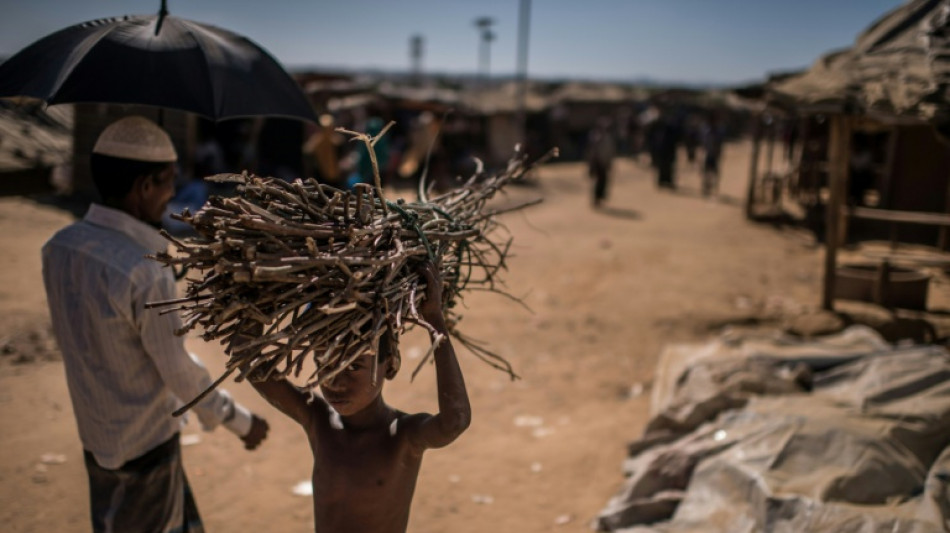
-
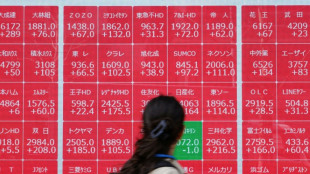 Asian markets rally on US rate cut hopes
Asian markets rally on US rate cut hopes
-
Zanele Muholi, S.African photographer reclaiming identity
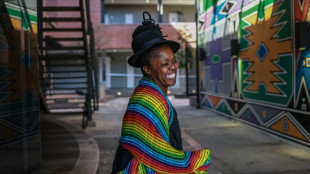
-
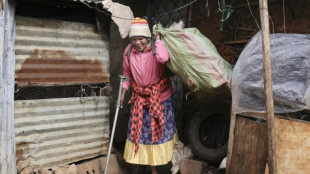 'Restoring dignity': Kenya slum exchange offers water for plastic
'Restoring dignity': Kenya slum exchange offers water for plastic
-
Human ancestor Lucy gets first European showing in Prague

-
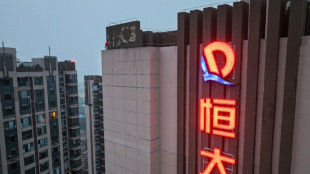 China Evergrande Group delisted from Hong Kong stock exchange
China Evergrande Group delisted from Hong Kong stock exchange
-
A healer and a fighter: The double life of UFC star Shi Ming

-
 US Open chaos as Bonzi ousts raging Medvedev
US Open chaos as Bonzi ousts raging Medvedev
-
Bleak future for Rohingya, as Bangladesh seeks to tackle crisis
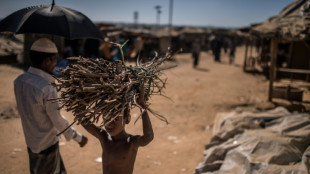
-
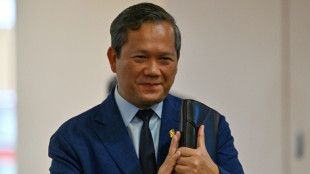 Cambodia MPs pass law allowing stripping of citizenship
Cambodia MPs pass law allowing stripping of citizenship
-
What to look for at the Venice Film Festival

-
 Venice welcomes Julia Roberts, George Clooney to film festival
Venice welcomes Julia Roberts, George Clooney to film festival
-
Djokovic voices physical concerns after US Open win

-
 Olympic Council of Asia says Saudi Winter Games 'on schedule'
Olympic Council of Asia says Saudi Winter Games 'on schedule'
-
Asian markets rise on US rate cut hopes
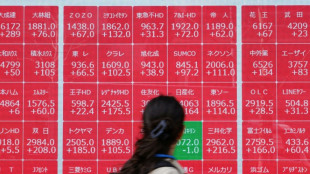
-
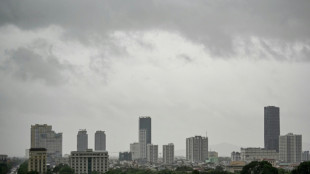 Vietnam evacuates tens of thousands ahead of Typhoon Kajiki
Vietnam evacuates tens of thousands ahead of Typhoon Kajiki
-
Sabalenka into US Open second round, Djokovic off the mark

-
 Australian mushroom meal survivor says 'half alive' after wife's killing
Australian mushroom meal survivor says 'half alive' after wife's killing
-
SpaceX calls off Starship megarocket launch in latest setback

-
 Djokovic shrugs off blisters to advance at US Open
Djokovic shrugs off blisters to advance at US Open
-
Israeli strikes in Yemen's capital kill six, Huthis say
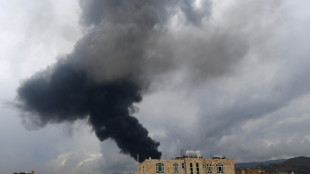
-
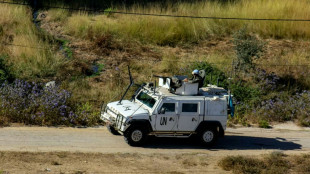 UN Security Council to vote on embattled Lebanon peacekeepers
UN Security Council to vote on embattled Lebanon peacekeepers
-
Egyptian farmers behind world's perfumes face climate fight alone
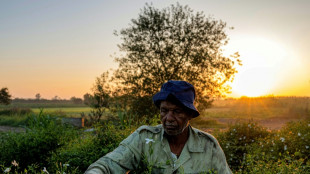
-
 'Life-long dream': Oasis kicks off North American tour in Toronto
'Life-long dream': Oasis kicks off North American tour in Toronto
-
Australia's mushroom murderer faces victims' family in court

-
 'Over the moon': Filipino Eala bags historic first at US Open
'Over the moon': Filipino Eala bags historic first at US Open
-
Fleetwood triumphs at Tour Championship for elusive first PGA Tour title

-
 Mbappe fires Madrid to victory at Real Oviedo
Mbappe fires Madrid to victory at Real Oviedo
-
Giroud strikes late to lift Lille past Monaco, Rennes implode early at Lorient

-
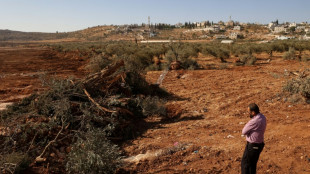 Israeli bulldozers uproot hundreds of trees in West Bank village
Israeli bulldozers uproot hundreds of trees in West Bank village
-
David strikes on Serie A debut as Juve ease past Parma

-
 Sabalenka into US Open second round as Fritz, Shelton advance
Sabalenka into US Open second round as Fritz, Shelton advance
-
Israeli strikes in Yemen's capital kill four, Huthis say
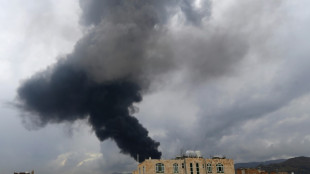
-
 England's Botterman aiming to be world's 'best loosehead prop'
England's Botterman aiming to be world's 'best loosehead prop'
-
Kneecap defy critics with 'Free Palestine' chant at Paris gig

-
 New Zealand start Women's Rugby World Cup defence by downing battling Spain
New Zealand start Women's Rugby World Cup defence by downing battling Spain
-
Winless Man Utd need to 'grow up', says Amorim

-
 Shelton romps into US Open second round
Shelton romps into US Open second round
-
Kneecap defy objectors with 'Free Palestine' chant at Paris gig

-
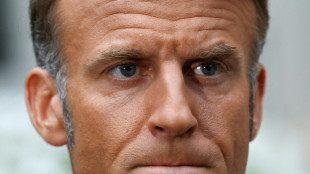 US envoy criticises France's lack of action over antisemitism
US envoy criticises France's lack of action over antisemitism
-
Trump clashes with Democrats as he expands National Guard plans
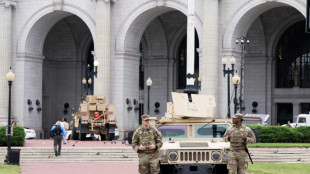
-
 Raducanu cruises to first US Open win since 2021 triumph
Raducanu cruises to first US Open win since 2021 triumph
-
Man Utd still winless after Fulham draw, Everton win to open new stadium

-
 Hamburg draws blank on Bundesliga return
Hamburg draws blank on Bundesliga return
-
Spain heatwave was 'most intense on record'
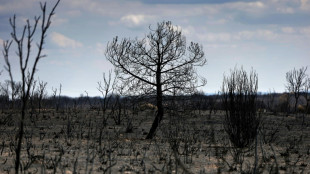
-
 Chaotic Rennes set Ligue 1 red card record and lose 4-0 at Lorient
Chaotic Rennes set Ligue 1 red card record and lose 4-0 at Lorient
-
Russia and Ukraine exchange POWs, civilians
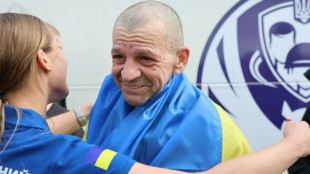
-
 Moyes sees big step forward after Everton win stadium opener
Moyes sees big step forward after Everton win stadium opener
-
Vingegaard wins on Vuelta mountain to take overall lead

-
 Vingegaard wins on Vuelta mountain
Vingegaard wins on Vuelta mountain
-
Zelensky calls for Putin talks as peace efforts stall
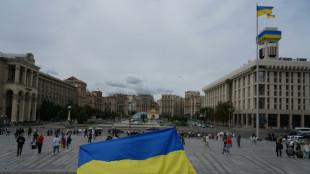

Bleak future for Rohingya, as Bangladesh seeks to tackle crisis
The rain was relentless the night Mohammad Kaisar fled for his life from his home in Myanmar's Maungdaw township.
Barefoot and exhausted, he trudged with his parents and four siblings on mud paths until they reached the Naf River.
On a flimsy boat, they crossed into Bangladesh, joining around a million of the largely Muslim Rohingya minority, fleeing a military crackdown in Myanmar's Rakhine state.
That was in 2017. Eight years later, rain still lashes down on his simple shelter in the sprawling refugee camps of Cox's Bazar.
But for the 28-year-old refugee, nothing has washed away his despair.
"War is raging. Hundreds are waiting at the border to enter Bangladesh. Every day, a new family from Rakhine takes refuge," Kaisar told AFP by telephone, speaking outside his cramped hut in Balukhali camp.
"How is it possible to return home? We were destined to stay in this crowded camp, sandwiched between small huts."
- 'Like a hostage' -
Bangladesh on Monday is holding talks aimed at addressing the plight of Rohingya refugees, even as fresh arrivals cross over from war-torn Myanmar and shrinking aid flows deepen the crisis.
The meetings in Cox's Bazar are taking place ahead of a UN conference in New York on September 30.
Both Bangladesh and the UN want to provide stable conditions in Myanmar for the Rohingya to eventually return.
That seems unlikely any time soon.
"I consistently hear from Rohingya refugees that they want to return to their homes in Myanmar, but only when it is safe to do so," Nicholas Koumjian, who heads the UN's Independent Investigative Mechanism for Myanmar, warned ahead of the meeting.
"Ending the violence and atrocities against civilians from all communities in Rakhine is critical for the eventual safe, dignified, voluntary and sustainable return of those that have been displaced."
But Kaisar's old homeland of Rakhine is the site of intense fighting in Myanmar's civil war, triggered by the 2021 coup that ousted the democratic government.
Bangladesh has recorded a surge of refugees from Myanmar since early 2024, with 150,000 more Rohingya arriving.
For Kaisar, life in Myanmar was a spacious home, running a small grocery shop.
Today, in the grim camps, it's a battle for survival.
Safety is fragile. Factional clashes have shaken the camp in recent months.
"We had two armed groups fighting only a few months ago. It was like a hostage situation," he said.
"Violence is common; children are the most vulnerable."
- 'Violence and atrocities' -
In Rahkine, restricted access due to fighting has been compounded by worldwide aid cutbacks spearheaded by US President Donald Trump's freeze on humanitarian funding.
The World Food Programme -- which received nearly half its 2024 donations from the United States -- warned this month that 57 percent of families in central Rakhine are now unable to meet basic food needs.
In the camps, food too is a constant worry.
Each refugee receives a ration card worth about $12 a month. Kaisar listed what that buys: 13 kilogrammes of rice, a litre of oil, a handful of onions and garlic, and a packet of salt.
"It fills our stomachs, but there is no nutrition," he said.
"I have a three-year-old son. He needs milk, eggs, lentils, but we cannot afford them. Nutrition centres in the camps provide support to children under two. After that, we are left to struggle."
- 'Used us as pawns' -
Education is the next looming hurdle, and Kaisar fears for his young son.
"Will he be able to study and get a job? Or will he spend his whole life as a refugee like me?" Kaisar asked.
He recalled how ordinary villagers in Bangladesh once handed him dry clothes and food after his escape. But beyond that generosity, the future looks bleak.
The violence that uprooted him still rages across the border, and Rohingya militants working with the Myanmar junta have tried to recruit refugees, according to camp residents, UN reports and analysts.
"We civilians have been continuously betrayed," Kaisar said bitterly. "Every side has used us as pawns."
For now, the father's appeal is simple: that Dhaka eases restrictions on education, to allow Rohingya children to attend regular Bangladeshi schools.
"At least allow our children to attend school," he said. "If they can stand on their own, maybe their future won't be as hopeless as ours."
L.Wyss--VB
